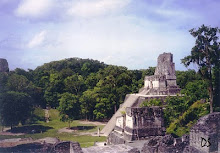lunedì 14 dicembre 2009
05 - GUATEMALA MAKES LANDMARK CIVIL WAR CONVICTION
A former military commissioner became the first person to be convicted of the forced disappearance of people in Guatemala's 36-year civil war on Monday, and was sentenced to 150 years in prison.
A panel of three judges found former military commissioner Felipe Cusanero guilty of the disappearances of six peasant farmers between 1982 and 1984 in a landmark case that overcame Guatemala's notorious bureaucracy and impunity.
Almost a quarter of a million people, mainly poor Mayans, were killed during the 1960-1996 conflict between leftist guerrillas and the government. Around 45,000 of them are thought to have been forcibly made to disappear.
Over 80 percent of the atrocities were committed by the army, according to a United Nations-backed truth commission.
The tiny courtroom in Chimaltenango, a provincial capital about 25 miles (40 km) west of Guatemala City near where Cusanero ordered the disappearances, was packed with Mayan villagers and families of the disappeared as the judges read out their verdict.
"We weren't looking for vengeance, but for the truth and for justice," said Hilarion Lopez, whose son Encarnacion was taken by soldiers in March 1984 when he was just 24 years old and who was never seen again by his family.
Cusanero, now in his mid-60s, was the commissioner in charge of around 40 soldiers in the region in the early 1980s.
Guatemalan rights groups believe he was responsible for the deaths or disappearances of more people, but only the families of six victims came forward to testify against him.
Legal experts say it is the first time anyone has been convicted for forced civil war disappearances in Guatemala.
"This judicial precedent opens the door for the families of the tens of thousands of victims to take their cases to court," said Mario Minera, executive director of the human rights organization CALDH, which has spent four years fighting for disappearance cases.
Few people have ever been tried for the crimes and human rights violations that took place during Guatemala's conflict and the army has refused to allow access to its archives.
Former military dictator Efrain Rios Montt continues to serve as a lawmaker in Guatemala's Congress even as he faces accusations of genocide committed during the civil war.
But the country has started a healing process, exhuming war graves to search for the dead.
Molding police archives were discovered in a warehouse in the Guatemala City four years ago and could provide evidence in hundreds of cases of disappeared people.
Maria Tan, whose husband was made to disappear by Cusanero, said the verdict was a significant step for the country. "My grandchildren are growing up and it's important that they never experience what we went through," she told Reuters. (Writing by Robin Emmott, editing by Anthony Boadle)
(By Sarah Grainger, Reuters, 31/8/2009)














